Some of the links in this post are affiliate links. This means if you click on the link and purchase the item, I will receive an affiliate commission at no extra cost to you. All opinions remain my own.
Hiking isn’t just a way to exercise your body – it can also be an enriching hobby! Adventurers and thrill-seekers, grab your backpacks and get ready for the journey of a lifetime.
Whether you want to explore trails close to home or seek far-off locales in search of new experiences, hiking has something for everyone – breathtaking views that make every grueling step worth it, stories around campfires with friends old and new, fulfilling challenges as you conquer each mountain peak.
So lace up those boots – do you have what it takes to turn hiking into a hobby?
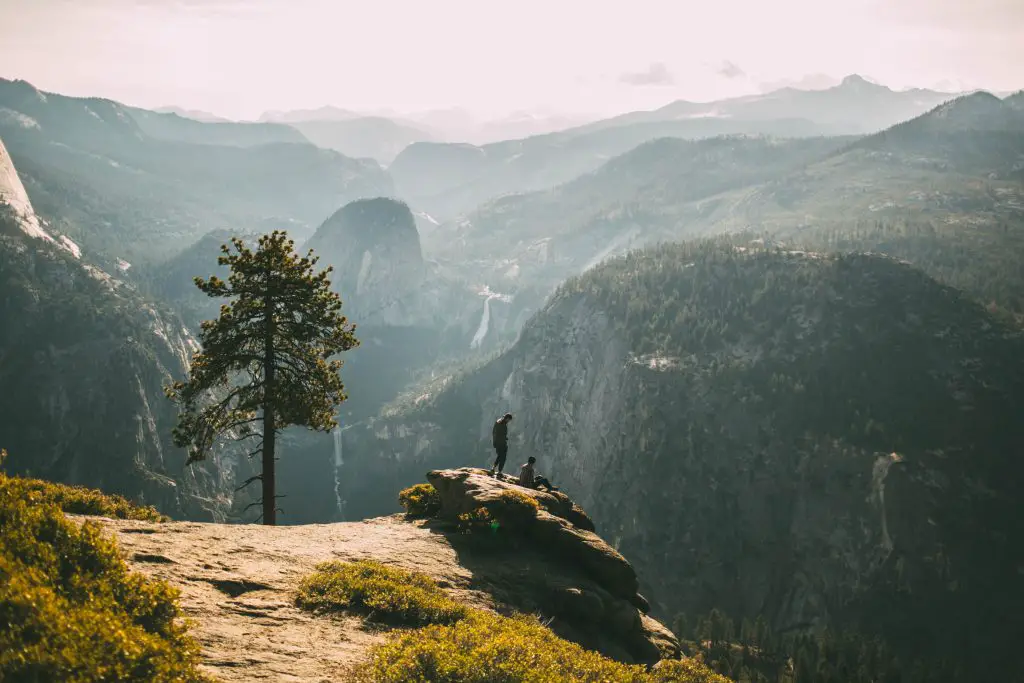
What is Hiking and What are the Benefits of it
Hiking is one of the best ways to explore the outdoors. Not only is it a great way to get some exercise and soak up some fresh air, but it also gives you a chance to learn more about nature and yourself. Let’s take a look at what hiking is all about and how you can benefit from it.
What Is Hiking?
At its core, hiking is simply walking in nature for recreation or pleasure. It can be done on any terrain from flat surfaces like boardwalks or trails, to steeper climbs with rocky terrain. When you go hiking, you rely on your own physical strength instead of motorized vehicles like cars or bikes. Some people hike alone while others prefer going in groups; either way, it’s important to know your limits and stay within them when embarking on an outdoor adventure.
The Benefits of Hiking
One of the most obvious benefits of hiking is getting in shape! A good hike will get your heart rate up and help build muscle strength—all while enjoying some fresh air and beautiful scenery. Plus, if you find yourself needing a little extra motivation, bringing along a friend or two can help make sure you stick with it!
Hiking is also great for mental health—it provides an escape from the hustle and bustle of daily life and encourages mindfulness by allowing us to focus our attention on our surroundings instead of worrying about work emails or bills that need paying. Taking time out for yourself in nature can help reduce stress levels as well as increase creativity and boost overall productivity when we return home.
Last but not least, hiking allows us to appreciate the beauty of nature first-hand—something that many people miss out on due to busy lifestyles. By taking time out for yourself in nature, you can connect with the environment around you and gain an appreciation for everything that Mother Nature has to offer!
Hiking is an amazing way to explore the great outdoors while getting fit and reducing stress at the same time! Whether you’re looking for some solo “me time” or want to share the experience with friends and family, there are plenty of trails suitable for all skill levels so don’t be afraid to get out there and hit the trail! With all its physical and mental benefits, it’s no wonder why so many people are turning towards hiking as their favorite outdoor activity these days.
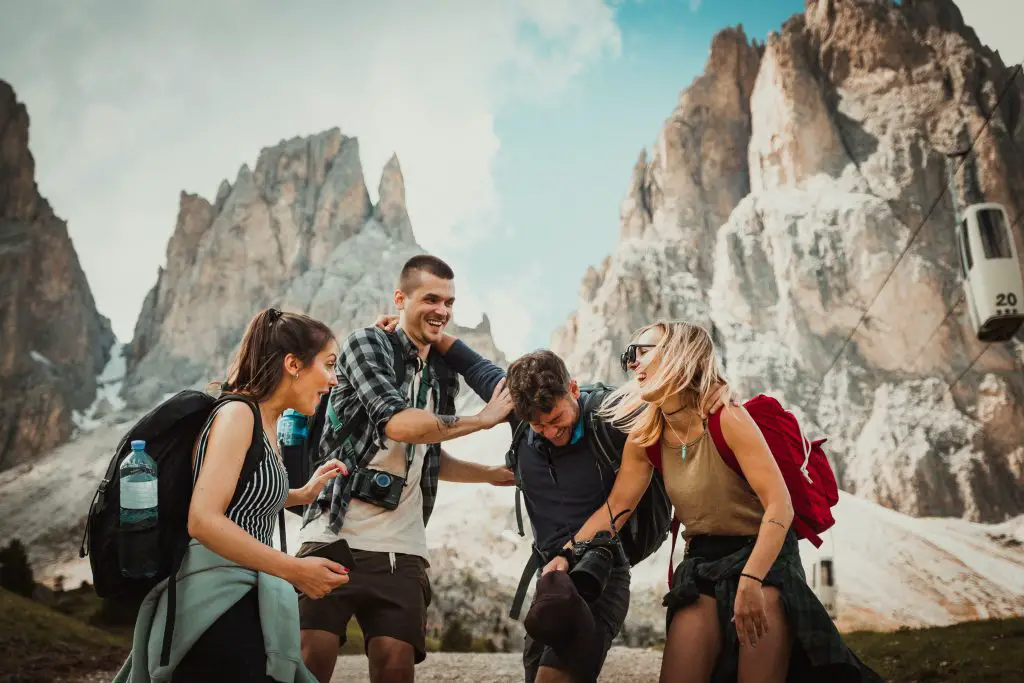
How to Get into Hiking if You’ve Never Done It Before
Are you interested in exploring nature and taking up hiking as a hobby, but have no idea where to start? Don’t worry, we’ve got you covered! Taking the time to explore the great outdoors can be incredibly rewarding and a great way to stay active. You don’t need to be a hiking pro or even have any experience—this guide will help get you started on your journey into the world of hiking.
Gearing Up for Your First Hike
First things first, make sure that you are prepared before embarking on your hike. It’s important to invest in quality gear that is both comfortable and suitable for the conditions. Here’s a list of items you should consider bringing with you:
- Hiking shoes or boots – A sturdy pair of shoes or boots is essential for any hiker. Make sure that they fit well and provide support while walking on different surfaces like rocks, gravel, and dirt. Invest in good quality and you may use your hiking boots more than just for hiking. Great hiking boots may also protect you from some of the hiking dangers like blisters or slipping and falling.
- Backpack – Choose an appropriate size backpack that fits all of your essentials without being too heavy or uncomfortable to carry over long distances. Make sure it has enough pockets for convenience and organization.
- Navigation tools – Bring along a map, compass, or GPS device so you know where exactly where you are at all times. This will help keep you from getting lost during your hike.
- Sun protection – Sunscreen, sunglasses, and a hat are must-haves when spending time outdoors since overexposure to the sun can cause serious harm. Make sure all skin is covered with protective clothing if possible as well!
- Food/water – It goes without saying that food and water are essential when going on hikes! Pack plenty of snacks and drinks so that you can stay hydrated and energized throughout your journey.
Choosing an Appropriate Trail
Once your gear is ready it’s time to find an appropriate trail for your first hike! Start by selecting a trail that matches your skill level; there are beginner-friendly trails available out there so don’t feel like more advanced routes are the only option available. Consider how much time you want to spend outdoors as well; some longer hikes may require overnight camping trips while shorter hikes may be completed within half a day or less depending on the terrain and climate conditions. No matter what route you select it’s always best to let someone know where you’ll be going in advance just in case of emergency situations!
Hiking is one of the best ways to explore nature safely and responsibly! With proper preparation and knowledge about what trails are best suited for beginners such as yourself, there’s no reason why anyone shouldn’t give hiking a try at least once in their life. So lace up those boots, grab some snacks, and take some photos along the way—it’s time to get out there and enjoy mother nature at its finest!
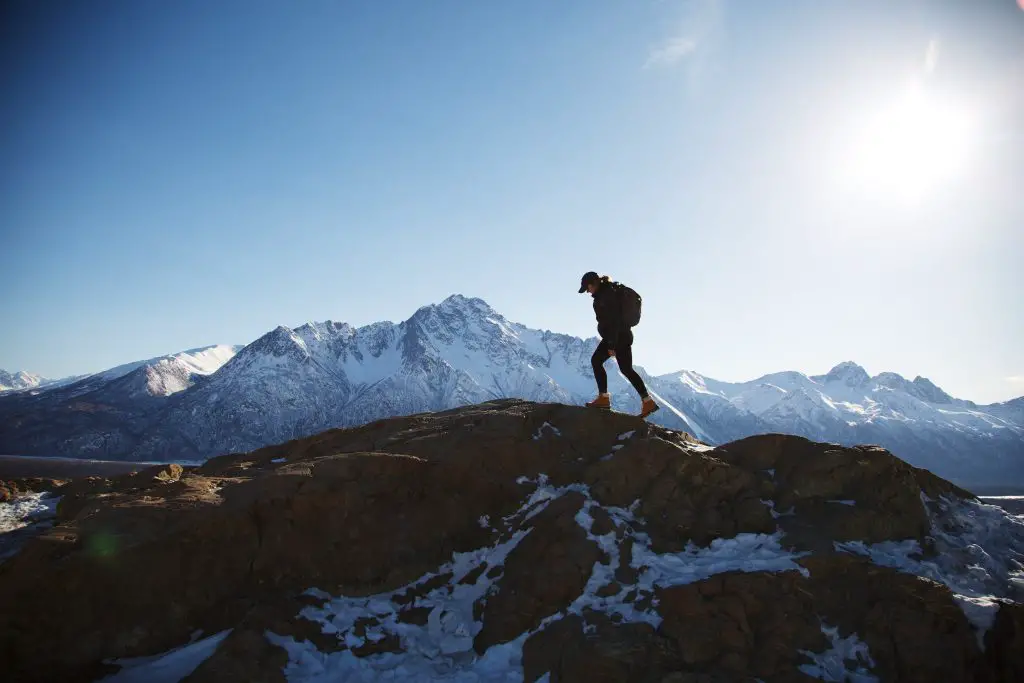
The Different Types of Hikes
There are so many different types of hikes, and each one offers a unique experience. Whether you’re a beginner hiker or an experienced adventurer, there is a type of hike that’s perfect for you. From day hikes to long-distance treks, here are the best types of hikes for every kind of traveler and outdoor enthusiast.
Day Hikes
Day hikes are perfect for those who don’t have much time but still want to get out in nature and explore. Most day hikes range from 2-10 miles and can typically be completed in under 5 hours, making them ideal for beginners or anyone who wants a shorter adventure. On day hikes you don’t have to plan that much ahead and day hike packing is also easier without any of the overnight items. If you’re looking for something more challenging, try to find a hike with plenty of elevation gain so you can get some great views at the end!
Backpacking Trips
Backpacking trips are great if you’ve got a few days (or more) to explore the outdoors. On these adventures, you carry all your gear on your back and camp out under the stars in whatever spot you choose. Backpacking trips require more planning as you need to bring enough food and other supplies to last throughout your journey, but they also offer a greater sense of freedom than day hikes as they allow you to explore far-off places that wouldn’t be accessible otherwise.
Multi-Day Treks
For those who want an even bigger adventure, multi-day treks are the way to go! These trips usually span several days (sometimes up to two weeks!) and offer breathtaking views along the way. Multi-day treks often involve camping in remote areas without any amenities such as showers or toilets, so make sure you come prepared with everything you need! You may also want to consider hiring a guide or joining an organized tour if it’s your first time doing this type of hike.
Trail Running
If you prefer an active hike over leisurely strolls through nature, then trail running might be right up your alley! Trail running combines the thrill of running with exploring beautiful trails—it’s like a mini-adventure each time! Trail runners typically take shorter routes than traditional hikers, so they can cover more ground in less time while still taking in the stunning scenery along the way. Additionally, trail running is an excellent way to stay fit while enjoying being outdoors!
No matter what type of hiking experience you’re looking for—whether it’s short and sweet or long distance—there is certainly no shortage of incredible hikes available around the world today.
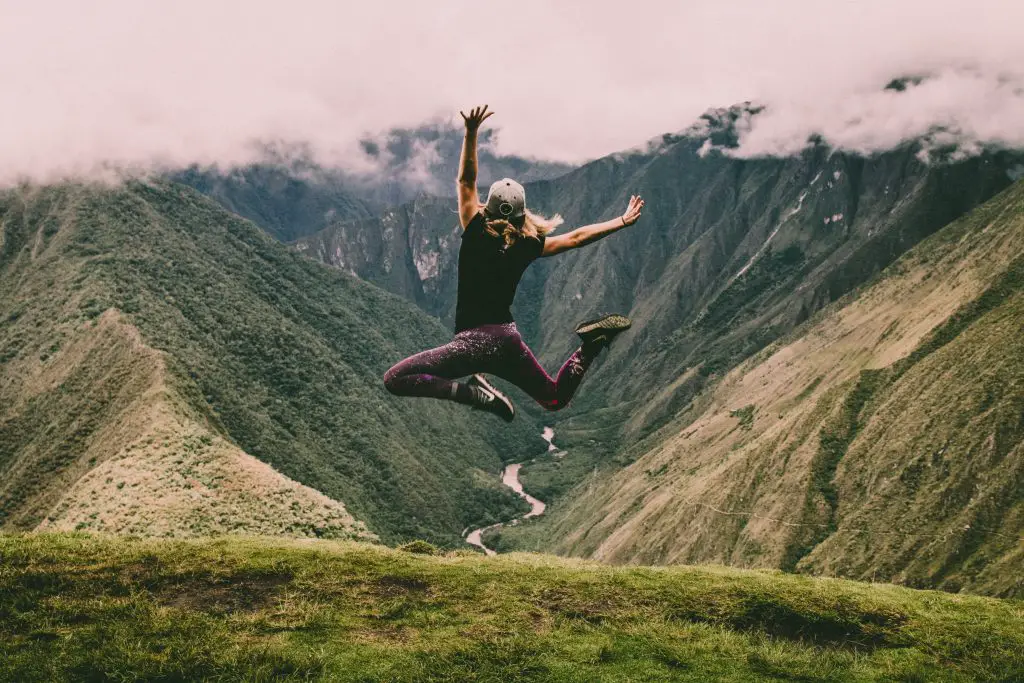
Why is Hiking a Good Hobby?
Hiking, often described as a journey through nature, has gained immense popularity as a hobby. But what makes it stand out among a plethora of recreational activities? Let’s delve into the reasons.
Affordability
One of the primary attractions of hiking is its cost-effectiveness. Unlike many hobbies that require hefty investments, hiking often demands little more than a pair of sturdy shoes and a sense of adventure. While specialized gear can enhance the experience, the basics are enough to get started.
Physical Health
Hiking offers a full-body workout. From strengthening the core to toning the legs, it’s a holistic approach to fitness. The varied terrains challenge different muscle groups, ensuring a comprehensive exercise regime. Plus, the fresh air does wonders for the lungs!
Mental Well-being
In today’s fast-paced world, mental tranquility can be elusive. Hiking provides an escape from the daily grind, allowing individuals to immerse themselves in the serenity of nature. This immersion often leads to reduced stress, clearer thoughts, and a rejuvenated mind.
Connection to Nature
Hiking fosters a deep appreciation for the environment. As hikers traverse forests, mountains, and valleys, they witness the beauty and fragility of nature firsthand. This connection often instills a sense of responsibility towards conservation and sustainability.
Versatility
Hiking is adaptable to individual preferences. Whether you’re in the mood for a gentle stroll in the park or a challenging mountain trek, there’s a trail for every inclination. This versatility ensures that the hobby remains fresh and exciting.
Community and Bonding
Hiking clubs and groups abound, offering enthusiasts a chance to connect with like-minded individuals. These communal hikes lead to shared experiences, stories, and memories, forging strong bonds among participants.

Why do People Like Hiking?
Hiking, the simple act of walking in nature, has captivated the hearts of many. But what is it about this activity that draws people in? Let’s explore some of the reasons.
Connection with Nature
At the core of hiking’s appeal is the deep connection it offers with nature. Away from the urban jungle, hikers find solace in the rustling leaves, chirping birds, and the gentle caress of the wind. It’s a return to our primal roots, where the simplicity of nature takes center stage.
Physical Benefits
- Exercise: Hiking is a fantastic cardiovascular workout that engages multiple muscle groups.
- Flexibility: Navigating through uneven terrains can improve flexibility and balance.
- Endurance: Long hikes build stamina and endurance, pushing the body’s limits.
Mental and Emotional Boost
Hiking is not just a physical journey; it’s a mental one too. The tranquility of nature acts as a balm for the mind, reducing stress and anxiety. Many hikers also report a boost in creativity and clarity of thought after a hike.
Sense of Achievement
Reaching the summit or completing a challenging trail brings an unparalleled sense of accomplishment. It’s a testament to one’s determination and perseverance.
Social Bonding
For many, hiking is a communal activity. It’s an opportunity to bond with friends, family, or even strangers who share a common love for the outdoors.
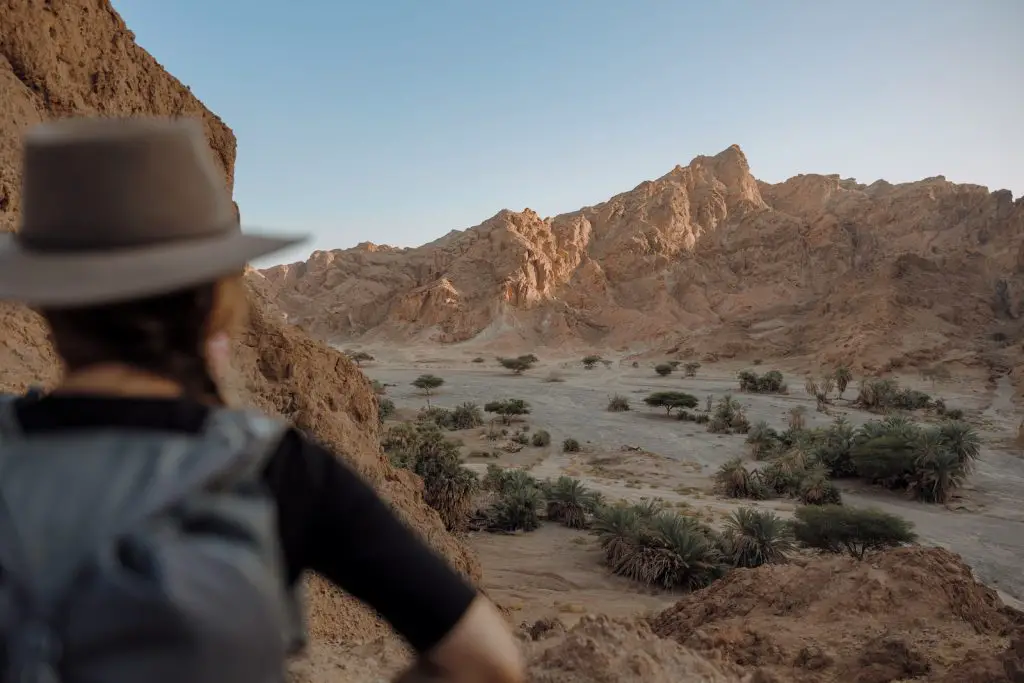
Is Hiking a Sport or Hobby?
Hiking is a hobby and a sport. Two things can be true at the same time. Here is an explanation to support both ideas.
The Case for Hiking as a Sport
For many, hiking is more than just a leisurely walk in the woods. It involves rigorous physical activity, especially when tackling challenging terrains or aiming for long distances.
Like other sports, hiking requires preparation, training, and the right equipment. Competitive hiking events, such as trail races and mountain marathons, further solidify its place in the realm of sports.
The Case for Hiking as a Hobby
On the other hand, many people view hiking as a hobby. It’s a chance to escape the hustle and bustle of daily life, reconnect with nature, and rejuvenate the mind.
For these individuals, hiking isn’t about competition or physical prowess; it’s about personal enjoyment, exploration, and the experience of being outdoors.
A Blend of Both
Perhaps the most accurate perspective is that hiking can be both a sport and a hobby. Its versatility is one of its greatest appeals. Whether you’re pushing your limits on a steep mountain trail or taking a gentle stroll through a forest, hiking accommodates all levels of intensity and purpose.
Whether you see hiking as a sport, a hobby, or a bit of both, one thing is certain: it offers a unique and fulfilling experience that enriches the body, mind, and soul.
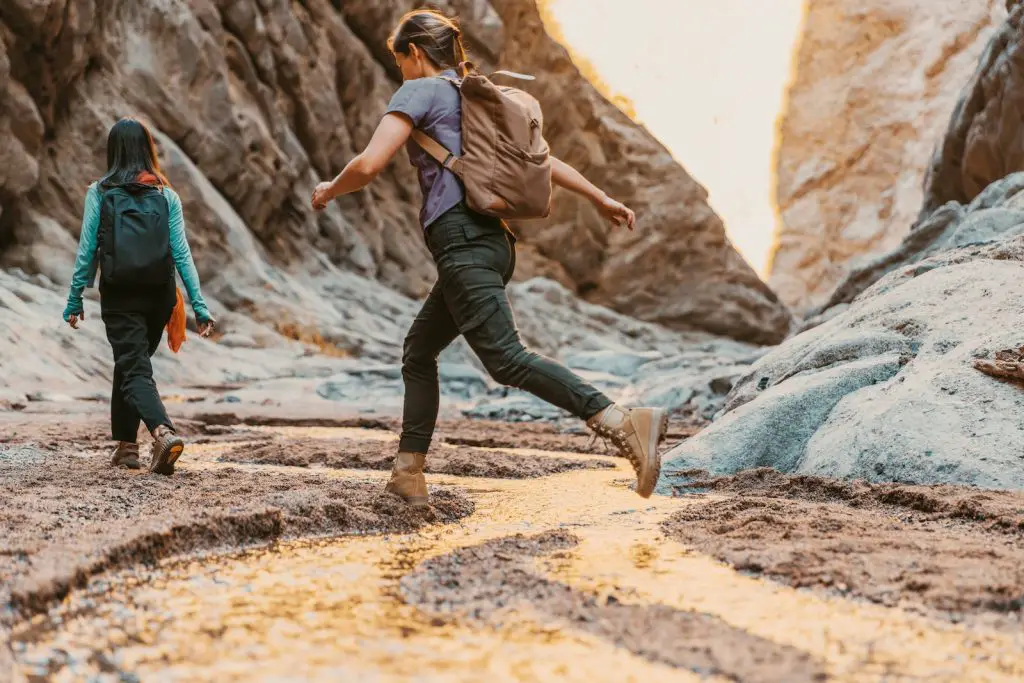
How to Stay Safe While Hiking
Hiking is a great way to explore nature and connect with the outdoors. But, it’s important to stay safe while you’re out there — especially if you’re going solo! Here are some tips I’ve learned over the years from personal experience, as well as from other hikers who know what they’re talking about.
Plan Ahead & Prepare
Make sure you always have a plan before heading out on a hike — even if it’s just a short one. Know where you’re going, how long it will take, and what type of terrain will be encountered along the way. This means doing your research before leaving home – read up on the area so that you know what type of wildlife may inhabit the area and whether or not there are any dangerous plants or insects that could pose a threat.
Bring Supplies
Pack plenty of water, snacks, and other necessary items (sunscreen, hat, bug spray, etc). Depending on the length of your hike, you may also want to bring a first aid kit or some type of emergency gear in case something unexpected happens. Additionally, make sure your phone is fully charged before hitting the trail – being able to use GPS or call for help can be extremely useful in an emergency situation.
Be Mindful of Wildlife
It’s important to respect wildlife by keeping your distance and being mindful of their presence – do not feed them or try to approach them! Keep an eye out for signs that an animal may be agitated or aggressive-such as growling or making direct eye contact and back away slowly if needed. Additionally, never leave food unattended in areas where animals may be present; this can lead to them becoming habituated to human beings and increase their chances of coming into contact with people.
Hiking is an amazing way to explore nature and get some exercise at the same time! However, it’s important to stay safe while doing so—especially if you’re hiking alone! By following these tips for proper planning and preparation prior to heading out on a hike (as well as being mindful of wildlife) you can ensure that your next outdoor adventure is both memorable and safe!
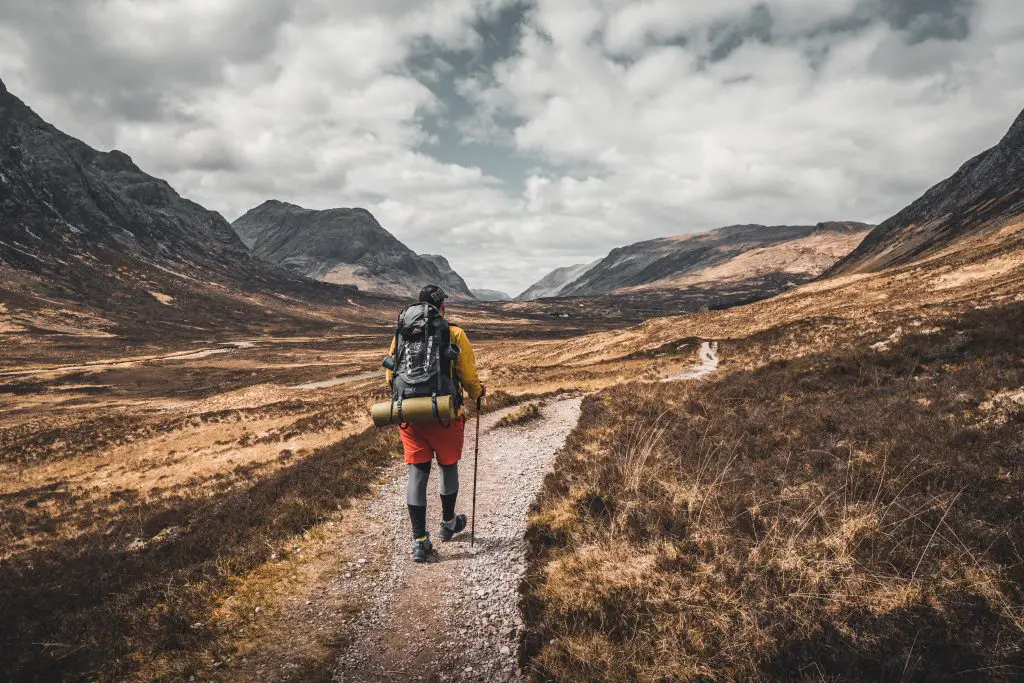
Hiking Etiquette
The great outdoors can be a great teacher, and if you’re seeking a way to engage with nature, there’s no better way than hiking. But before you hit the trails, it’s important that you understand the basics of hiking etiquette. Knowing how to interact with your environment and other hikers is key to having an enjoyable experience. Here are some tips on how to be a responsible hiker.
Respect Nature
One of the most important rules of hiking etiquette is respecting nature, which means leaving no trace behind. That means bringing with you everything that you brought and not disturbing plants or wildlife along the way. If you find yourself tempted to pick a wildflower or take home a memento, remember that you can take a picture of it instead and that won’t affect nature in a negative way.
Be Considerate of Other Hikers
When it comes to other hikers sharing the trail, don’t forget about common courtesy. If someone is walking up the hill when you’re headed down, step aside and let them pass (or offer encouragement if they look like they need it). Also, keep your noise level at a minimum; loud talking or music can disrupt other hikers’ experiences. When camping overnight on the trail, practice “Leave No Trace” principles by cleaning up after yourself and packing out all trash.
Share Trail Information
If you see another hiker looking lost or confused—perhaps they don’t have a map—give them directions if you can! Even better…share your knowledge about local flora and fauna so they can really enjoy their time in nature. Sharing information is also helpful for safety reasons: if someone looks like they might be heading into danger (like an unstable area), feel free to mention it so everyone stays safe!
Hiking etiquette isn’t just about remembering polite manners; it’s about being considerate of both the environment and fellow hikers alike. Respect your environment by leaving no trace behind, be courteous of others by keeping noise levels low, and share your knowledge whenever possible! With these basic tips in mind, everyone can enjoy their time outdoors as safely as possible.
Travel tips and tricks:
- Save big on flights with Skyscanner.com – This incredible tool lets you find the most affordable airfare to your dream destination. You’ll love their “Whole Month” feature, which displays the best prices for the entire month. If you’re flexible with travel dates, this is a game-changer for scoring the cheapest tickets.
- Stay in the heart of the action – I always find the perfect accommodation on Booking.com. Their map view lets me filter hotels by my budget and select ones that are right in the center of it all. Trust me, you won’t want to miss this easy way to book your ideal stay!
- Go beyond the resort – I’m all about making the most of my trips, and GetYourGuide.com has been a lifesaver for booking unforgettable tours and day trips. It’s the most hassle-free way to dive into the local culture and explore the hidden gems in every new place.
- Hit the road with DiscoverCars.com – There’s no better way to explore your destination than by car! Renting a vehicle has never been easier, and with their competitive prices, you’ll have the freedom to create your own adventures.
I highly recommend trying these tools for yourself – not only will you save money, but you’ll also create memories that last a lifetime. Happy travels!
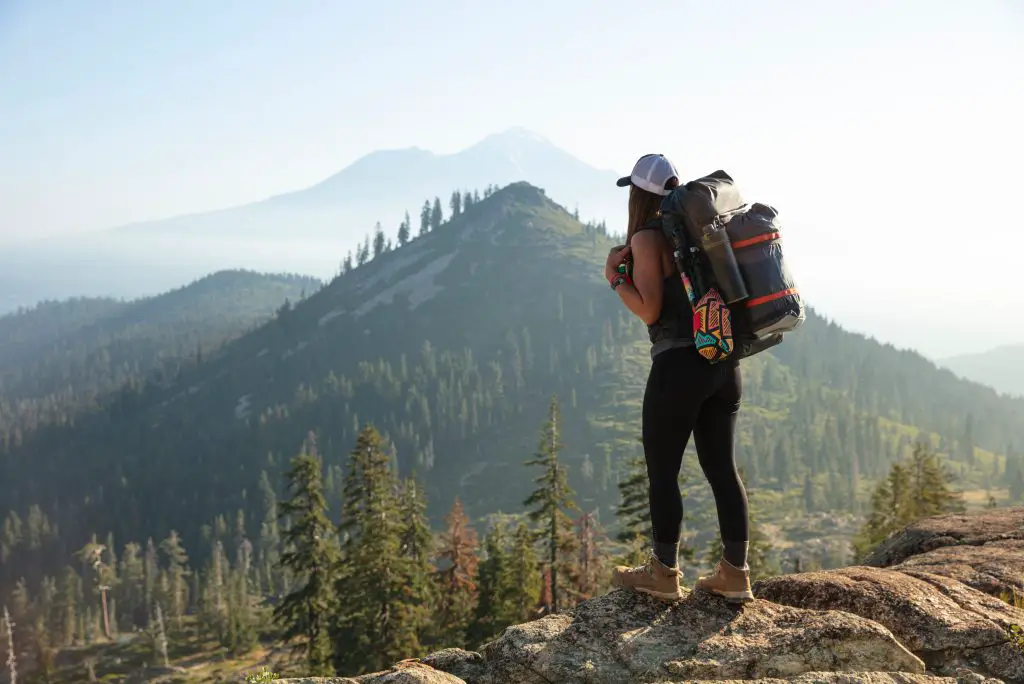
Hiking for me is more like a passion. Unlike hobbies which are done in leisure time, for hiking, we often need to plan. I find solace in every hiking/trekking trip that I go.